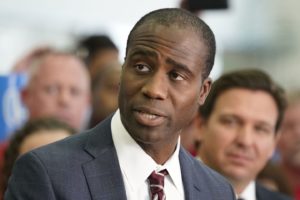Florida medical board approves draft ban on ‘harmful and irreversible’ gender-affirming treatments for minors
A draft rule restricting gender-affirming “care” for minors was preliminarily approved last week by a committee for the Florida Board of Medicine.
The proposal would ban doctors in the state…

A draft rule restricting gender-affirming “care” for minors was preliminarily approved last week by a committee for the Florida Board of Medicine.
The proposal would ban doctors in the state from providing certain types of gender treatments, including puberty blockers, hormone treatments and sex change operations, for anyone under the age of 18, according to a report by Orlando’s News 6.
The board has been working to codify guidance issued in April by the Florida Department of Health, which advised against such gender transition “care” due to the lack of conclusive evidence regarding the treatments, as well as the potential for long-term, irreversible effects.”
In June, Florida’s Agency for Healthcare Administration issued a report in support of the guidance. An agency spokesperson told Fox News it “found several services for the treatment of gender dysphoria promoted by the federal government – i.e., sex reassignment surgery, cross-sex hormones, and puberty blockers – are not consistent with widely accepted professional medical standards, and are experimental and investigational with the potential for harmful long-term effects.”
During the Oct. 28 meeting, the Florida Board of Medicine listened to testimony from medical experts on the controversial topic and considered public comments.
Dr. Michael Laidlaw, an endocrinologist from California, testified at the meeting, saying research found 50% to 90% of children who experience gender dysphoria grow out of it as adults, NBC News reports.
“The basic problem with this treatment as I see it is: What happens when you force a square peg into a round hole?” he asked. “You end up injuring or destroying the peg in the process.”
Testifying against the ban, Dr. Meredithe McNamara reportedly questioned the research Laidlaw cited and the state used in issuing its guidance.
“Neither of the authors of the state’s review is a subject matter expert,” she said. “One individual is a dentist. The other is a post-doctoral fellow in biostatistics. At a bare minimum, the systematic review should be conducted by those who are qualified to assess the literature. I wouldn’t trust a dermatologist review of the literature on a neurosurgical procedure, for instance.”
Chloe Cole, 18, a biological female who has “detransitioned,” argued during her public comment that mental health treatment is a better course than puberty blockers and surgeries. She told the board her transition to male began at 12 and she underwent a double mastectomy at 15. A year later, she regretted her transition, she said.
“All the talk about mental health, self-perception, pronouns and ideology leads me to the question: Why is a mental health epidemic not being addressed with mental health treatment to get at the root causes for why female adolescents like me want to reject their bodies?” Cole asked.
Jude Speegle, who is openly transgender, testified against the ban, citing the high suicide rates among those who identify as transgender. Emile Fox, a transgender person from Orlando, complained to NBC News that some who signed up to testify weren’t allowed.
However, a spokesperson for the medical board told NBC in an email, “[A]ny members of the public who were unable to provide comment can submit written comment via email to BOMpubliccomment@flhealth.gov within 24 hours of the conclusion of the workshop. These comments will be included in the rulemaking record and reviewed just as all other public comments.”
The full board is scheduled to take a final vote on the proposal on Friday, Nov. 4.



